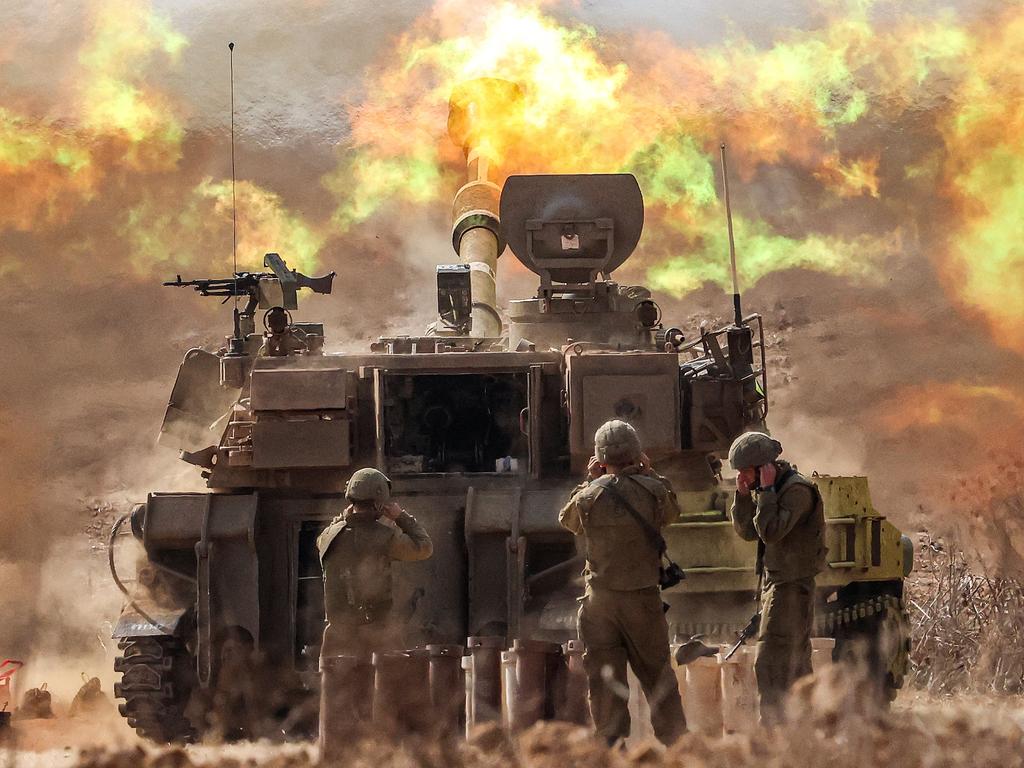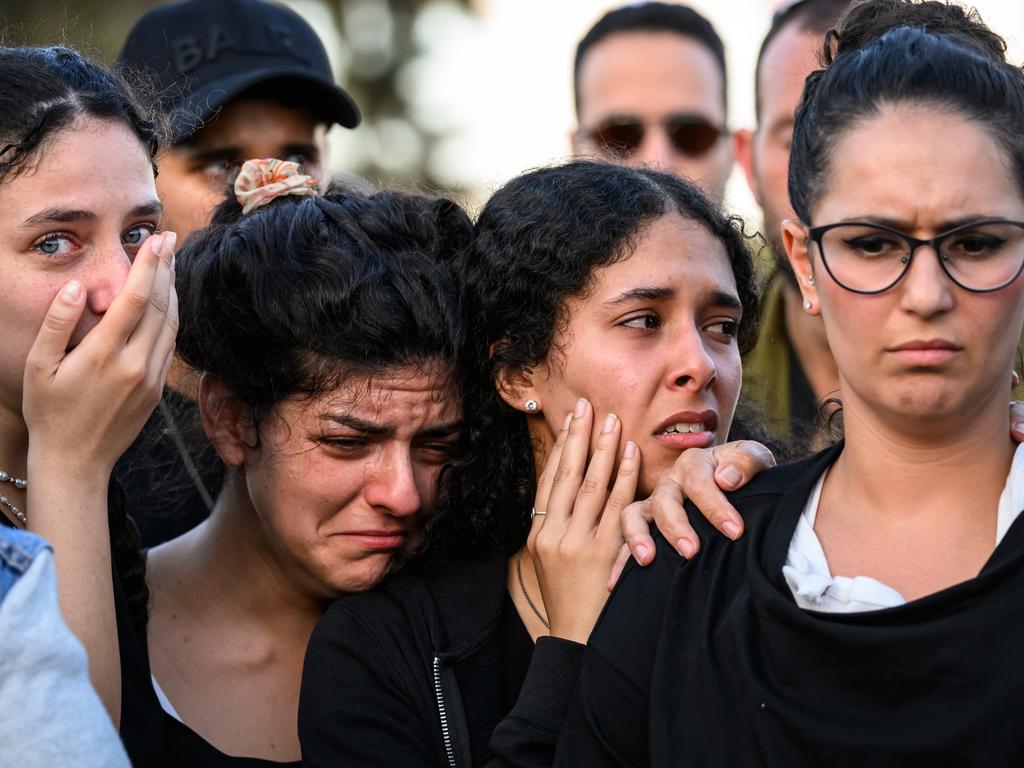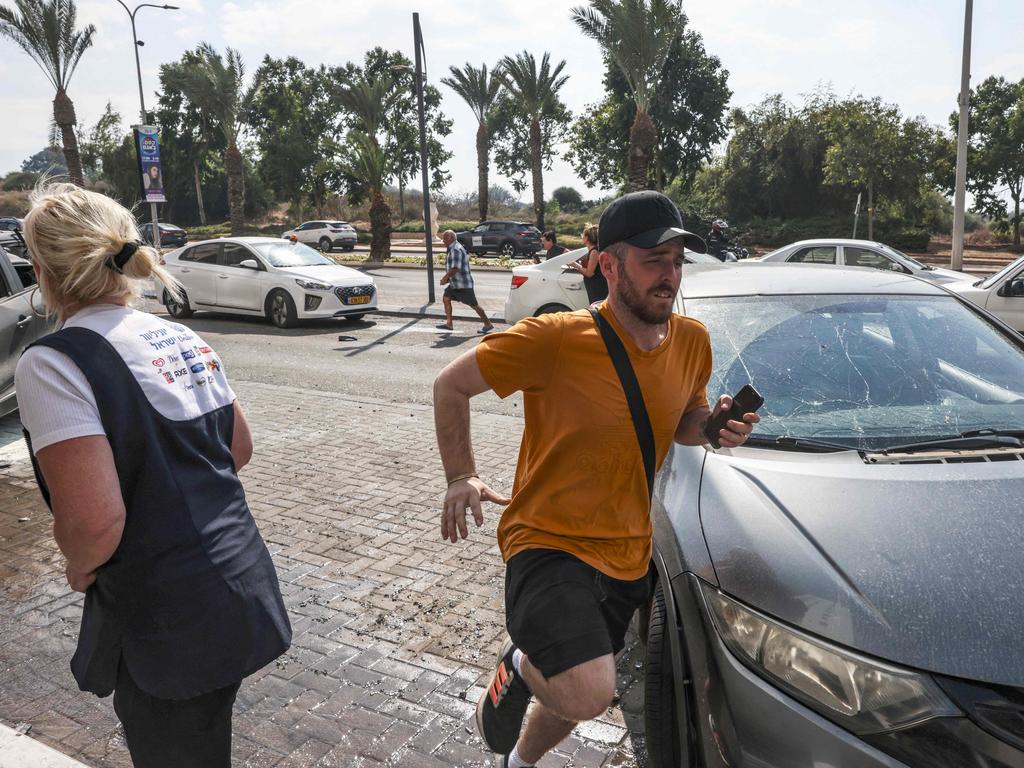Israel strikes Hamas targets ahead of a Gaza ground incursion
The US has putting air defences on standby and signalled extra deployments to the Middle East for ‘regional deterrence’.
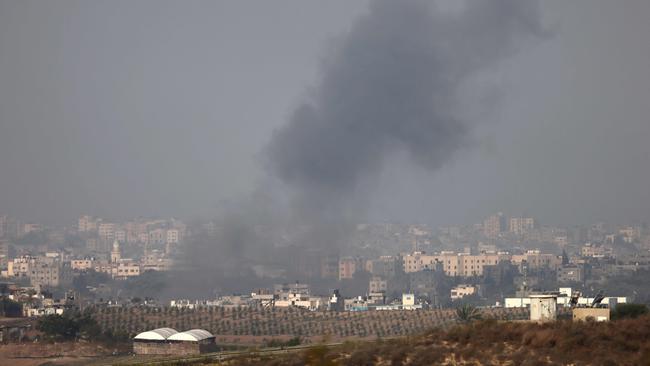
Israel has ramped up precision airstrikes on northern parts of the Gaza Strip before an imminent ground incursion into the territory, with the US putting air defences on standby and signalling extra deployments to the Middle East for “regional deterrence” and to “assist in the defence of Israel”.
US Defence Secretary Lloyd Austin said the Pentagon would increase its military readiness following “detailed discussions” with US President Joe Biden over escalations by Iran and its proxy forces.
Those talks followed a US warship’s interception of three missiles fired by Iranian-backed Houthi rebels in Yemen several days ago, thought by officials to have been aimed at Israel.
“These steps will bolster regional deterrence efforts, increase force protection for US forces in the region, and assist in the defence of Israel,” Mr Austin said.
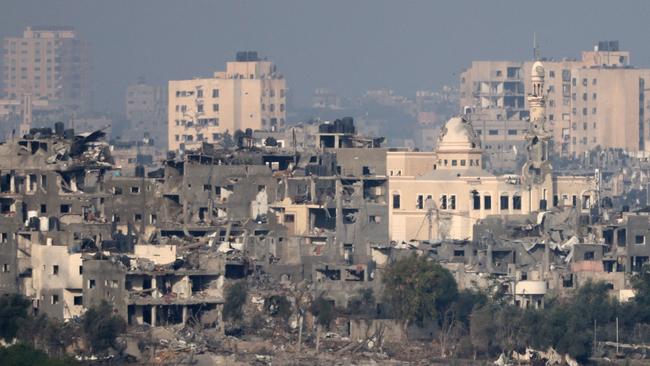
It came as Hamas released two American hostages, Judith and Natalie Raanan, on Friday night, and as the US President held his own talks with Israeli officials about the movement of soldiers into Gaza. Asked whether he’d been pushing for that to be delayed further, Mr Biden said: “I’m talking to the Israelis.”
Israel Defence Forces officials have scaled up their messaging towards Lebanon in recent days, saying the aggression posed by Hezbollah in the country’s south could drag the nation into an unneeded conflict.
Skirmishing along the border of both nations has resulted in casualties and town evacuations, with the IDF reporting repeated fire from anti-tank missiles, which Hezbollah officials have praised, responding in kind with airstrikes on military compounds.
The IDF said it had also struck a terrorist cell in southern Lebanon planning to carry out a guided missile attack on civilians in the northern community of Avivim.
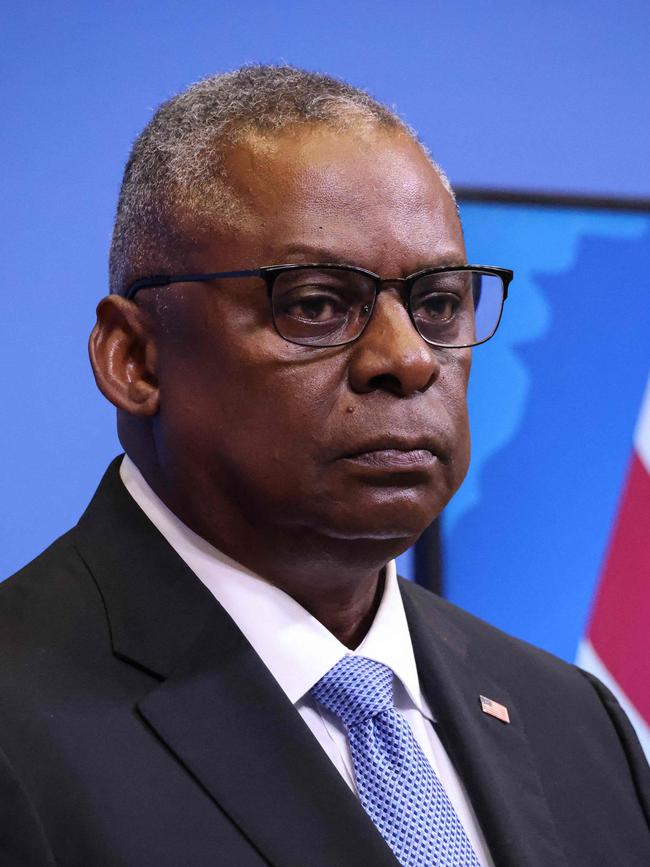
Hezbollah is allied with Hamas in Gaza, and held meetings with its officials in Beirut ahead of the terrorist attacks that were carried out in southern Israel on October 7, and which ended with the murder of 1400 people, the vast majority of whom were civilians.
“Is the Lebanese state really willing to jeopardise what is left of Lebanese prosperity and Lebanese sovereignty for the sake of terrorists in Gaza?” said IDF spokesman Jonathan Conricus.
“That’s a question that the Lebanese authorities need to ask themselves and answer.”
Hezbollah’s second-in-command, Naim Qassem, warned that Israel would pay for any incursion into Gaza, saying his group was “in the heart of the battle” and that recent fighting on the border was carried out to “weaken the Israeli enemy and let them know that we are ready”.
Six Hezbollah militants were killed over the weekend, it said, the highest number for a single day since the conflict started.
On Sunday morning (AEDT) Israel military chief Herzi Halevi told Israeli forces preparing for the ground incursion that the mission to eliminate Hamas would go ahead as planned.
“We will enter the Gaza Strip. We will begin an operational and professional mission to destroy the Hamas operatives, the Hamas infrastructure, and we will also keep in our minds the images, the scenes and the fallen from Shabbat two weeks ago,” Lieutenant General Halevi said, referring to the October 7 massacres.
“Gaza is complex, Gaza is dense, the enemy is preparing a lot of things there, but we are preparing things for them as well.”
Continuing a string of targeted killings, another two Hamas operatives were eliminated by the IDF near Gaza’s border fence over the weekend, the Israelis alleging they were attached to the terrorist group’s Nukhba unit, responsible for the massacres in Israel. Syrian state-run news agency SANA also reported that Israel carried out strikes against international airports in Aleppo and Damascus, putting both sites out of service; both airports were shut for the same reason on October 12 and 14.
Further afield from Lebanon and Gaza, Israelis harbour grave concerns for additional conflicts arising out of the West Bank, where the IDF said it had eliminated an underground terrorist compound operating within the Al-Ansar mosque in Jenin used by Hamas and Islamic Jihad personnel.
“Intel was recently received which indicated that the terrorists, that were neutralised, were organising an imminent terror attack,” the IDF said.
“The mosque was used by the terrorists as a command centre to plan the attacks and as a base for their execution.”
A first trickle of aid entered the blockaded Gaza Strip on Saturday through the Rafah Crossing with Egypt, but the 20 trucks permitted to cross were described as by the UN a “drop in the ocean”, given the “catastrophic” humanitarian situation for 2.3 million residents.


